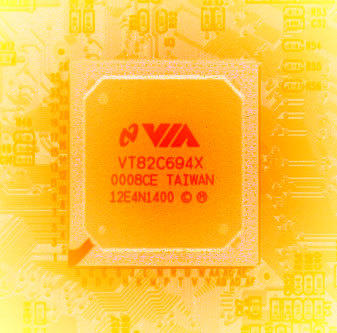Comprehensive VIA motherboard roundup June 2000
Introduction
The days when Intel used to dominate the chipset market seem to be over. A strong wind is blowing from Taiwan, as the VIA Apollo Pro 133A has sold considerably better than Intel's aborted i820 chipset. i820/Camino's release date had to be delayed due to problems using three RIM modules. Despite all difficulties (128 MByte RDRAM start at $400), Intel wanted to introduce their i820 chipset with force, making use of the strange and buggy MTH chip. This little chip was meant to enable SDRAM support for i820. Unfortunately, an error inside of the Memory Translator Hub was found six weeks ago. That' why Intel is now exchanging all defective i820 motherboards using the MTH against RDRAM systems or a refund.
In the past VIA chipsets didn't enjoy the good reputation that Intel chipsets used to have. Most derivatives of the Apollo family lacked performance for generations, some of them were stillbirths and others suffered from bugs. Finally however, with the introduction of the Apollo Pro 133A, VIA has been offering the most competitive chipset ever - partly thanks to Intel's i820 disaster. The 440BX chipset may still be faster at the same FSB clock, but it was never designed for 133 MHz FSB. Thus it is missing the required multiplier in order to run the AGP within specs when running the FAB?(FSB?) at 133 MHz. So far, VIA is the only company offering a Pentium III chipset for 133 MHz FSB and PC133 SDRAM support, which will change in a few days however, when Intel officially releases i815/Solano.
We already know that i815 will be able to beat Apollo Pro133A's in performance. On June 11, the Review of the Final i815/Solano Chipset was posted, verifying our performance expectations. Yet, the new Solano chipset might not be available in quantities, as Intel may not want to have another competitor for their glorious Rambus chipsets. Moreover, we expect the Solano to be a lot more expensive than the VIA products.
Get Tom's Hardware's best news and in-depth reviews, straight to your inbox.

Patrick Schmid was the editor-in-chief for Tom's Hardware from 2005 to 2006. He wrote numerous articles on a wide range of hardware topics, including storage, CPUs, and system builds.
